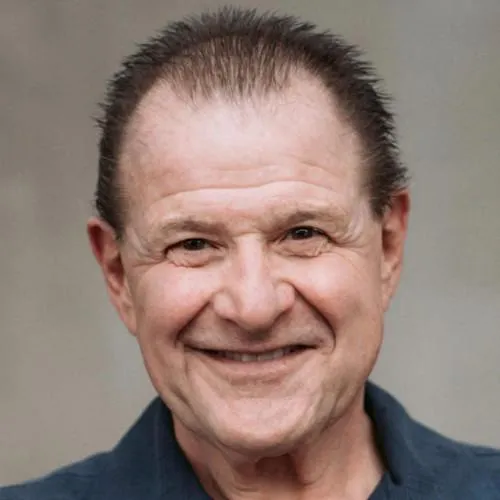The Human View™ Blog

Don't Deny - or Blame - The Pain
Why honoring the full emotional spectrum is a prerequisite for real health engagement
Have you noticed that in the alternate universe of advertising, everyone's either dancing, spinning, or high-fiving through a field of daisies - usually while clutching a bottle of pills or tapping a shiny new app?
It’s emotional gaslighting on a mass scale. According to Madison Avenue, the only valid human experiences are "whee!," glee, euphoria, and the occasional choreographed shimmy.
Pain? Anger? Confusion? Those are either flat out denied or too embarrassing to admit. But, hey, your moderate to severe plaque psoriasis will get cured nigh-on overnight with just a few simple injections! And you'll surely break into song on a mountaintop! It’s absurd. And it’s insulting. And in the world of health engagement, it’s actively dangerous.

Five core emotions
To design health programs that resonate, we must go beyond “positive vibes only” messaging. We must meet people where they actually are. That starts with understanding some of the foundational emotional language of being human.
Let’s revisit five of our core emotions—not as mood states, but as internal signals of met or unmet needs:
Glad = need is met
Mad = need is not met, and perhaps boundaries are crossed
Sad = a release, loss, or letting go
Scared = need more information to feel safe or have clarity
Guilty = a real or imagined violation of someone’s rules or expectations
These aren’t dysfunctions to be optimized out. They're signals—just like hunger or fatigue. They arise when something meaningful is happening inside us. They are essential data.
So why do we keep pretending they don’t exist?

Health engagement requires emotional engagement
Pretty much everyone in health management has learned that well-being engagement, program adoption, and certainly lasting behavior change depend on internal motivation. And guess what’s at the root of motivation? Emotion.
We will not unlock meaningful participation through logic alone. Nor will reminders, checklists, or incentives do much without emotional traction. Until we build systems that acknowledge and work with emotional reality—not just cherry-picked “positivity”—we’re building on sand.
A person who feels unseen, unheard, or overwhelmed isn’t going to leap joyfully into a portal. They’re going to tune out.
The moment we start treating emotions as input, not interference, we start engaging human beings instead of marketing to avatars.

The gut-clench of hydroplaning
Many of us have experienced "hydroplaning." When you feel your car start to skid out of control. Your gut feels like it's getting squeezed; your heart starts racing; you can even verge on terror. In the more amorphous world of anxiety and depression, days blur together, you feel no connection to the content, the process, or the purpose of what you’re being offered.
There are three predictable ways this shows up:
Check-out instead of opt-in. When people feel overwhelmed or unseen, they disengage. No matter how sleek your UI or how generous your benefit plan is—people won’t lean in.
Cynicism instead of curiosity. If emotions are invalidated or ignored, trust erodes. Engagement efforts start to feel like manipulation, not support.
Disconnection instead of alignment. Programs that treat people like “users” instead of whole beings struggle to drive sustainable outcomes. You can’t align with what you don’t acknowledge.
In short, ignoring emotion creates friction—no matter how frictionless your tech.

Entelechy - or, "the tree exists in the acorn"
There’s a word from ancient philosophy I think we need to bring back: entelechy. It means the full realization of something’s potential. The inner urge of a seed to become a tree. The soul’s arc toward wholeness.
What if health engagement wasn’t just about getting people to complete a task—but about supporting their entelechy?
What if we saw emotional fluency not as a distraction, but as the very ground upon which growth is possible?
Maslow showed us that once survival needs are met, we yearn for more:
Meaning
Belonging
Purpose
Self-actualization.
But we can’t get there without integrating our emotions rather than suppressing them.
The last word
To help people rise into the higher realms of the hierarchy, we have to start at the base—not just with benefits, but with being. That means giving people permission to express all that they feel - authentically and without being tsk-tsk'd. And designing systems that reflect the full terrain of the human heart. As many have said, "You've got to feel it to heal it."

Because people aren’t just participants in our programs.
They’re the architects of their own becoming.
~ Mark Head
© 2025. All Rights Reserved.
Aspirations
“The pain is not to make you suffer; the pain is to make you more aware. And when you are truly aware, suffering disappears."
~ Osho

Click the green button or the blue button (below) to visit our scheduling pages.




Mark Head
President
With 4 decades of combined experience in employee benefits consulting, wellness and health management, Head brings a unique combination of dynamic perspectives into a clear vision of where the future of health care is moving - and it's moving towards deeper human connection, awareness, and engagement...
Follow Us On
© 2025 Benefit Personas, LLC. All Rights Reserved.

